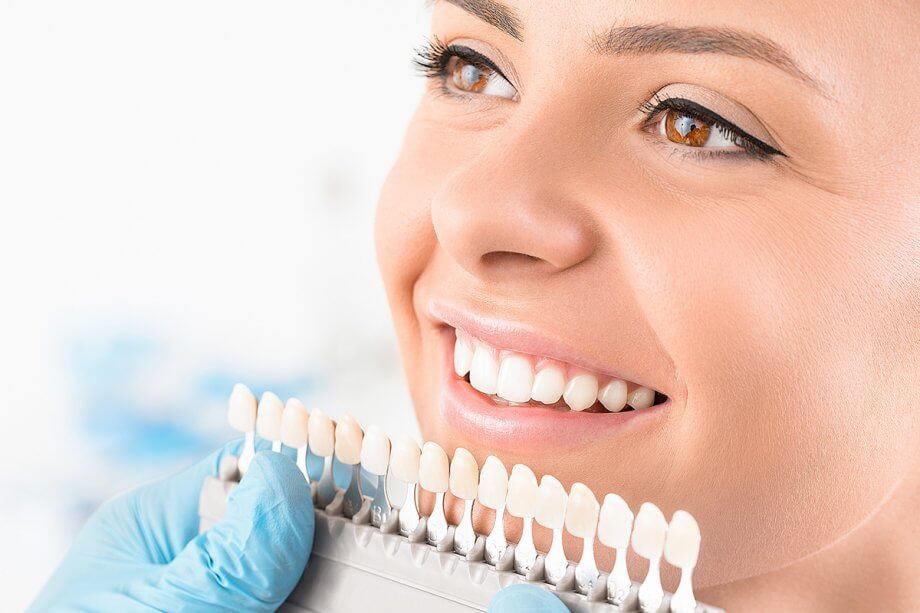For decades, bright white teeth have become an idealized beauty standard, driving many to seek out teeth whitening treatments. However, experts caution that excessive whitening can damage tooth enamel and long-term dental health.
How teeth whitening works
Teeth whitening treatments can effectively remove stains but work by chemically altering the natural tooth enamel. Understanding how whitening agents interact with teeth can help inform safe, moderate use.
Teeth naturally dull over time as deep-set stains accumulate from food, drinks, smoking, and other lifestyle factors. Whitening products aim to penetrate and break down these stains using chemical agents like hydrogen peroxide or carbamide peroxide. When applied to the teeth, these active ingredients oxidize the stain molecules, essentially bleaching them.
Over-the-counter whitening toothpastes use mild abrasives and polishers to remove surface stains. Professional whitening treatments use higher concentrations of hydrogen/carbamide peroxide gels, sometimes accelerated by light activation.
It's important to remember whitening treatments do not grant permanent results. Without lifestyle changes to curb staining, teeth will gradually dull again. Whitening effectiveness also varies depending on the type of tooth - results on dental crowns, veneers, and other restorations are limited.
Factors to consider before whitening your teeth
First, consult with your dentist to get a professional assessment of your oral health and teeth condition. They can identify any underlying problems that need treatment first, as well as determine if you are a good candidate for whitening. Discuss the different whitening methods available and get guidance on which is best suited for your needs and goals.
Realistically consider your expectations for the results - teeth whitening can significantly brighten and improve tooth color but may not achieve an extremely white "Hollywood" smile, especially if you have yellowish undertones. Also, keep in mind that whitening treatments are less effective on dental restorations like crowns or veneers.
Evaluate the total costs involved, including initial treatments and maintenance touch-ups over time. Teeth whitening can be an investment, depending on the method you choose. Consider whether the time commitment for the duration and maintenance of the whitening treatment works for your lifestyle.
Signs of excessive teeth whitening
While teeth whitening can brighten your smile, overdoing it can negatively impact your dental health. Be on the lookout for these signs that you may be whitening too aggressively:
- Increased sensitivity: You may experience pain or discomfort with hot or cold foods and beverages. This suggests enamel erosion, exposing dentin tubules.
- Gum irritation: Whitening agents can cause gum inflammation, redness, swelling or sores. Discontinue whitening and see your dentist if you notice this.
- Translucent teeth: Excessive whitening can lead to transparent, blue-toned teeth as enamel thins out. This effect requires professional dental assessment.
- Uneven whitening: Teeth whitening unevenly across your smile may indicate improper application or underlying dental issues needing treatment.
- Rapid re-staining: If your brightened teeth revert back quickly, you may be over-bleaching.
- Dry mouth: Frequent whitening can reduce saliva flow, leading to dry mouth symptoms.
Remember, moderation is key for long-term dental health and a naturally bright smile. If you exhibit any of these signs, consult your dentist promptly to avoid permanent tooth damage from over-whitening.
Teeth Whitening on the Upper Westside
When properly administered by a dentist, teeth whitening is generally safe for your dental health, though some sensitivity is common after treatment. However, excessive use of over-the-counter whitening kits or products not approved by the ADA can potentially damage teeth over time by eroding.
We offer two teeth whitening options:
GLO Professional Teeth Whitening
- Type: In-office and at-home whitening system
- Best For: Moderate to severe stains, sensitive teeth
- Features: Whitening gel used with GLO device's heat and light for accelerated in-office whitening. At-home system sustains results between visits.
Kör Whitening
- Type: Combination of in-office and custom take-home whitening
- Best For: Moderate to severe stains, sensitive teeth
- Features: Involves overnight whitening with custom trays filled with gel. Followed by a 2-hour in-office treatment to further brighten your smile. This provides very white results while still being gentle for sensitive teeth.
Smiles On The Upper Westside provides teeth whitening services in the UWS neighborhood of NYC. Contact us at 212-222-5225 to learn more and schedule your appointment.

